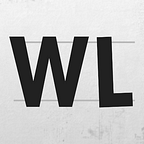Let’s stop blaming festivals for unbalanced lineups
There’s been a hell of a lot of talk about the lack of diversity in Australian festival lineups lately. While we thought the conversation regarding festival diversity would be a heap of people also sick of seeing the same few acts that have been at every festival for the last 5 years, it’s actually a much larger issue than who gets placed on the line-up.
Many people feel that Australian festivals aren’t doing their best to give women the support they need or offer the same opportunities to women as they do to men. There’s been calls for festivals to implement more gender equal lineups with Jumanji’s debut hip-hop lineup recently being slammed for being all male.
We know this sounds a little controversial but we’ll say it — it isn’t always the festival’s fault. It’s their job to sell tickets and ensure a bunch of festival cookers enjoy their day. The issue is that the music industry itself is so incredibly skewed in terms of diversity that festivals don’t really have much choice when it comes to putting on a show that people actually want to go to while still reflecting an equal and diverse society.
A study of the top 600 songs from 2012 to 2017, as determined by Billboard’s end of year chart for each respective year, found that of the 1,239 artists that made the list only 22.4 percent of them were women. Additionally, last year’s Hottest 100 saw only 25 songs from female solo artists and all-female groups, keeping in mind that this is the “world’s biggest music democracy” and all acts were voted for by you, the people.
Festival promoters aren’t sitting in their offices with a big greedy grin on their faces as they find another way to oppress women. The fact is, people just don’t listen to as much music made by women as they do music that’s made by men. Laneway Festival promoter Danny Rogers echoes this sentiment stating “I don’t think it’s deliberate…” when referring to the idea that the lack of gender diversity on lineups is intentional.
How can you expect a promoter to put on a show that not only sells but also appears to be progressive and reflect a gender balanced music industry that we simply don’t have. Moreover, a Facebook poll conducted by Whatslively found that out of 420 votes (lol) a whopping 378 people wanted line-ups based on merit. Yes, not the biggest sample size but the results are still telling of how punters feel.
Festivals are the end product of music in this country, setting arbitrary quotas that most people don’t even want isn’t going to solve the massive amounts of gender imbalance in the industry. It’s not up to festival promoters to bring society forward and ensure we’re holding hands in the grass singing kumbaya.
To the argument that these arbitrary quotas is at least getting people to talk about this issue and how that doesn’t hurt — it does hurt. It hurts festivals putting in significant amounts of cash to make them choose certain acts over others due to a quota. It creates the likely possibility that they are picking certain artists so they won’t be crucified by the media and the social media mob when the lineup drops. This goes against the best interest of the festival and the industry at a whole and won’t go a long way in solving the actual gender inequality problem. As local electronic producer and industry voice KLP puts it — “We can’t blame festivals and promoters; it’s everyone in the industry and comes down to labels signing more women and playing more women on the radio…I think the promoters just don’t think about it and talking about it may make them realise we could represent a more diverse line-up”.
We’re all for the conversation, but not for quotas.
To be clear, we absolutely want to see women getting opportunities and killing it in the industry, we all just need to take a step back and assess WHY these festival lineups are such a sausage fest. There are exciting solutions brought forward to tackle the issue of gender inequality in music, for example some industry professionals recommend finding a female mentor that can help guide young artists through the tough terrain of the music industry, while others suggest that being open about inequality and asking questions can help destigmatize the issue. This is what the discussion on the gender equality issue needs to be about, but we’re seeing more attention skewed towards gender ratios in lineups than anything else.
Additionally, we need to look at who’s making the decisions in the industry so we can find a resolution. According to Triple J, there are way more men sitting on public boards for music organisations than women. Getting women into these positions of power is imperative to ensure that we can enact real gender equality from within the industry. A movement we will gladly get behind and see as effective in tackling this issue in the industry. This might also sound a little controversial but from the last few years we’ve been operating in the industry, we’ve had much more positive experiences dealing with female management than males in music, we notice more professionalism and less of that toxic arrogance we often experience with males. “…there’s still elements of the boys club in the music business around the world”, laments Danny Rogers.
Essentially, if we want things to substantially change than the conversation needs to change and be about the obstacles and challenges that women face in the industry as opposed to throwing hate at festival promoters who are only trying to appease punters with music that they actually listen to. We need to pay attention to what female musicians are saying, and work together with them to ensure that the Australian music scene is an environment where everyone can thrive.
